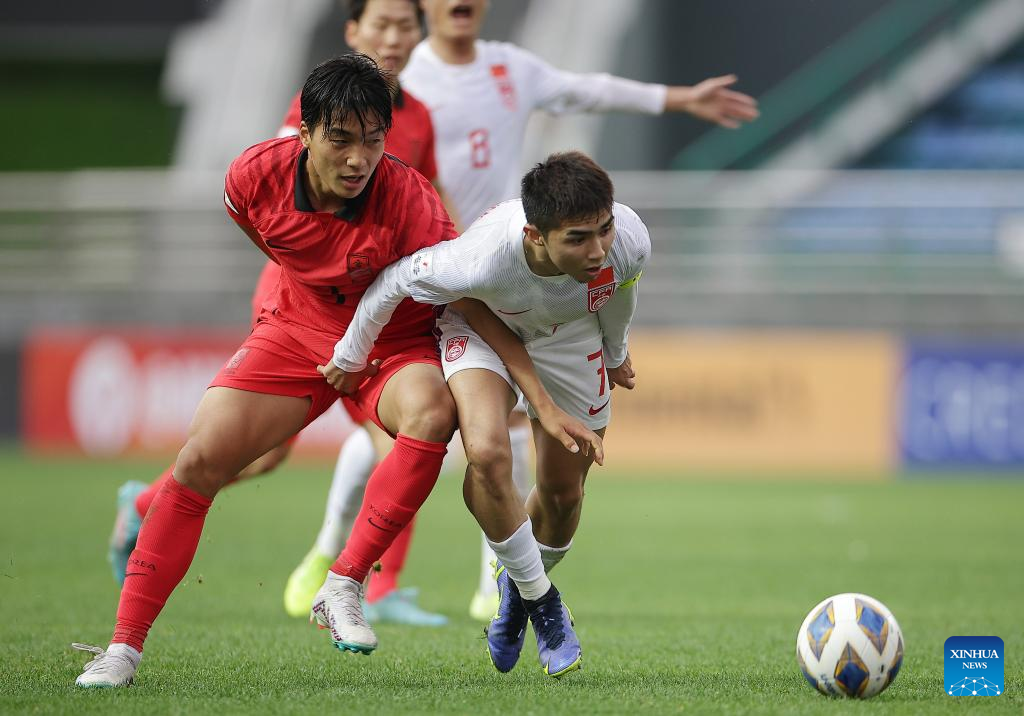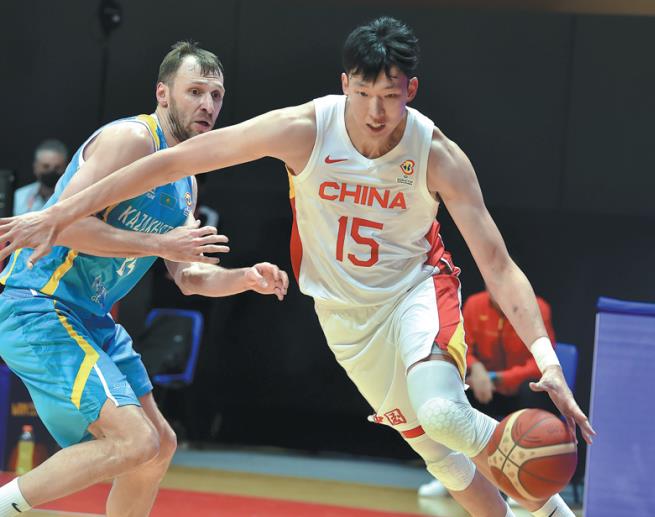A whole new ball game
 0 Comment(s)
0 Comment(s) Print
Print E-mail China Daily, March 16, 2023
E-mail China Daily, March 16, 2023
With the national teams failing to hit the heights and the domestic professional leagues in a rut, it is widely agreed that Chinese men's soccer, basketball and volleyball are all in need of a drastic shake-up. Vowing to get things back on track, Gao Zhidan, the director of the General Administration of Sport of China, is set to lead comprehensive reforms of these sports and impose strict measures to wipe out corruption.

"For a long time, the development of our nation's soccer, volleyball and basketball on the men's side has been unsatisfactory. Men's soccer, in particular, is slumping. The soccer industry now has a number of problems, and fails to live up to people's expectations," Gao, a deputy to the 14th National People's Congress, said in an interview on Sunday following a plenary meeting at the Great Hall of the People in Beijing.
"Achieving good results in men's soccer, basketball and volleyball are important yardsticks for a sporting superpower. So, leveling up our strength in these sports is a must for us to become a stronger sports nation."
The sports minister's interview instantly became trending news on Chinese social media. The hashtag "Sports minister bids to boost three big-ball team games" was viewed over 90 million times in just five hours, with most netizens expressing frustration at the stagnation in men's basketball, volleyball and, especially, soccer.
Chinese men's soccer hit a historic low when the national team failed to qualify for last year's FIFA World Cup in Qatar, even with the addition of naturalized players.
China's sole appearance at a World Cup finals was in 2002. Since then, World Cup-winning coach Marcello Lippi and a series of domestic managers have all failed to steer Team China back to the game's biggest stage.
In the professional leagues, clubs of all levels are facing survival problems. With financial curbs and the pandemic signaling the end of Chinese soccer's big-spending era, the profile and competitiveness of the pro leagues has diminished.
Those problems have been compounded by corruption in the game. In February, Chinese Football Association president Chen Xuyuan was placed under investigation for suspected violations of discipline and the law. In January, Chen Yongliang, the CFA's executive deputy secretary-general, and Liu Yi, the CFA's former secretary-general, were also placed under investigation for the same reason.
Those probes were reportedly linked to former Team China head coach Li Tie, who was placed under investigation in November by the national disciplinary inspection team as well as the Hubei supervision commission for suspected serious violations of discipline and the law. No details of the investigations have been released.
"Regarding the recent serious problems in the soccer sector, there's a lot of soul-searching to do, and we have been working on solutions and methods to change the current situation," Gao said.
"From the mentality and discipline of the people who work in this sector, to future reforms of Chinese soccer, we must have systematic methods. We need to tackle these problems bravely and fastidiously."
In late February, Aleksandar Jankovic was appointed head coach of the China's men's soccer team, and the 50-year-old Serbian has vowed to demand the highest standards from his players.
"I know that every long journey starts with a small step. As a head coach, I must have a clear picture of the big target. The general goal is to go for qualification for the 2026 World Cup," Jankovic said at his first media conference as head coach earlier this month.
"My requirements for all the players are the same. We will set the standard in terms of motivation, determination and hard work... The players must respect the jersey they wear. I want players who are generous, motivated and willing to sacrifice and run for their teammates."

The Chinese men's basketball team, meanwhile, is also rebuilding, but has at least started the year with some morale-boosting moments on the court. Aleksandar Djordjevic's men completed their 2023 FIBA World Cup qualifying campaign with an 86-74 victory over Iran in Hong Kong, China in late February. China finished the World Cup qualifiers in second place in Group F with 10 wins and two defeats.
A decidedly trickier task is booking a spot at the 2024 Paris Olympics, with only the best-performing Asian squad at the World Cup awarded the continent's solitary direct ticket to the Games.
The predominantly young, inexperienced squad appears unlikely to emulate the glory days of Chinese basketball when the legendary Yao Ming led the nation to an eighth-place finish at the 2008 Beijing Olympics.
China missed out on the Olympic stage for the first time at Tokyo 2020 due to a disappointing campaign at the 2019 World Cup at home. Its fight for a spot in Paris appears to be even tougher, but Djordjevic remains hopeful of improvements.
"They are working hard in the training camp. They have the quality but they have to grow and understand the level that is asked internationally," Djordjevic said in February.
"In order to help the national team win as soon as possible, to better match up against high-level opponents without suffering losses, and to establish a stable foundation for taking on opponents at the World Cup and Olympic level, I must see a forest behind the big trees."
The Chinese men's volleyball's team is also lagging well behind the world's top teams. Last year, its best result was victory at the 2022 Asian Volleyball Confederation Cup.
However, three straight defeats at last year's FIVB Men's World Championship not only left Team China languishing at the bottom of Pool E, but also last place overall in the 24-team championship.
The squad is currently training in Zhangzhou, Fujian province, while the team's best players, including Zhang Jingyin, are attempting to level up their skills in elite foreign leagues.
"There are daunting tasks ahead of us during these reforms. We have to be creative, and to build better systems for management, talent selection and training, while continuing to refine the development paths for the three sports," said sports minister Gao.
"We must start from the grassroots. We need to support the growth of more youth clubs. From policies, talent and financial investment, we need to give the grassroots more support to boost these sports' development."






Go to Forum >>0 Comment(s)